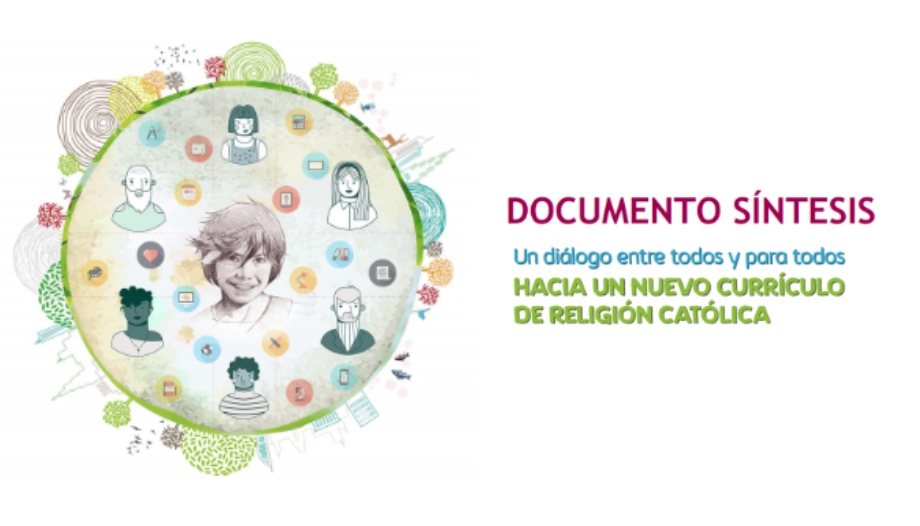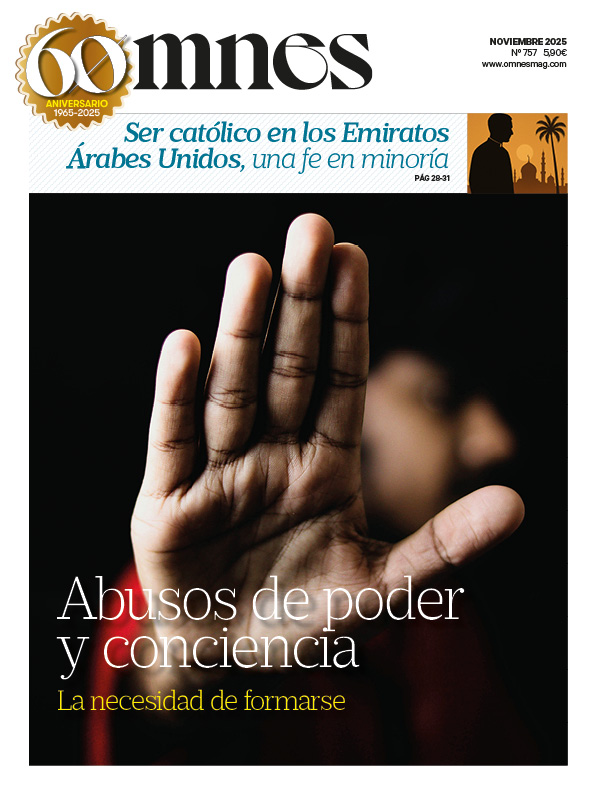Within the framework of the Plenary Assembly of the Spanish Bishops, the Episcopal Commission for Education and Culture has released the conclusions drawn from the Forum "Towards a New Religion Curriculum", which brought together Religion teachers, diocesan delegates and educators in four sessions from February 15 to March 22.
Bishop Alfonso Carrasco highlighted the good reception that this Forum has had among the teachers of Religion in our country and pointed out that "religious education is prepared to contribute to the improvement of education and society in general. He also stressed that the new curriculum of this subject promotes a "creative and proactive Religion class for the challenges of the school and the society of the 21st century".
Bishop Carrasco Rouco wanted to reiterate the will of dialogue "from this Episcopal Commission for Education and Culture with the educational administrations. Let us hope that the developments of the LOMLOE, which are yet to be known, will guarantee religious education the necessary space so that it can contribute effectively to the integral formation of our students and to the improvement of our educational system".
Main conclusions of the Forum
Raquel Pérez Sanjuán was in charge of presenting two documents prepared as a result of the Forum "Towards a New Religion Curriculum".
The first of these is dedicated to the participation figuresThe main results of the program are: access to the web and viewing of videos, submission of forms, etc. Among the figures, it is worth mentioning the more than 16,000 visits to the website and the majority participation of Religion teachers, especially those belonging to the public education system and to the Primary and Secondary stages.
The document summaryThis has involved a conscientious work of synthesis of all the sources of participation in this Forum, the reading of the material received and a new listening of each session to extract from each of them, the most significant and recurring issues expressed in each of them, as highlighted by Raquel Pérez Sanjuán.
The secretary of the commission has listed the ten key points of the conclusions
- A Church that is committed to the centrality of the person in education: The conclusions of this Forum on the new Catholic Religion curriculum must emphasize, first of all, that the ecclesial framework of our time has been taken into account.
- The European Education Area and the growing concern for humanization: the Forum program has responsibly embraced the international framework for education.
- The LOMLOE: a new pedagogical framework for curricula in all areas and subjects: the program of the Forum has taken into account, from the very beginning, the attention to the pedagogical novelties of the curricular framework of the LOMLOE. The new Catholic Religion curriculum will have to be planned in line with the pedagogical framework of the LOMLOE, that is to say, in terms of competencies and in reference to its descriptors in the exit profiles to be established by the educational administrations.
- Theology as an epistemological source of the Catholic Religion curriculum: The revision of the sources of the curriculum has helped to return to theology as an academic discourse on faith, capable of inspiring the selection of essential content for reflection on the Christian message.
- Faith-culture dialogue as a foundational attitude in the teaching of religionIt will be necessary that the contributions of the new Catholic Religion curriculum to the integral development of the person, enable him/her to engage in intercultural and interreligious dialogue.
- A Catholic Religion curriculum in line with the school's own purposes.The new curriculum will have at its center personal and social formation, taking care of emotional development and the life project; and it will have to accompany spiritual awakening and the search for answers to questions of meaning.
- A Catholic Religion curriculum with a competency-based approach: shall define its specific competencies in each of the educational stages, linking them to the eight key competencies and indicating their educational contribution to the exit profiles, shall list the basic learning as well as establish the evaluation criteria for each stage.
- A curriculum that can be programmed by areas in a globalized and interdisciplinary manner..
- A curriculum open to active and cooperative methodologies: The Forum also highlighted some good practices that connect Religion classes with the environment and, in addition to proposing their own learning, relate constructively with the social and cultural environment of the context.
- A common curriculum contextualized to local environments: In the case of Catholic Religion, although it has not been defined, the proposals aim at combining the common elements of the curriculum with others that are closer to local realities.
Both documents are available on the web https://hacianuevocurriculo.educacionyculturacee.esThe videos of the sessions make it easier to read, understand, work and develop.
The president wanted to point out that the Forum has given "renewed arguments for dialogue about the place of the Religion class in our educational system," referring especially to the situation of this subject as a result of the approval of the LOMLOE. In fact, due to this application of the LOMLOE, there are still to be developed "normative developments on the regulation of the Religion class" or those referring to the labor situation of Religion teachers in the new law.
The Commission has encouraged dioceses and educational institutions to work and disseminate these documents, which can be a "valuable instrument for the formation and updating of teachers in these theological and pedagogical issues" and has also invited them to feel responsible for monitoring the educational reform and to get involved in it to the extent of their possibilities".








